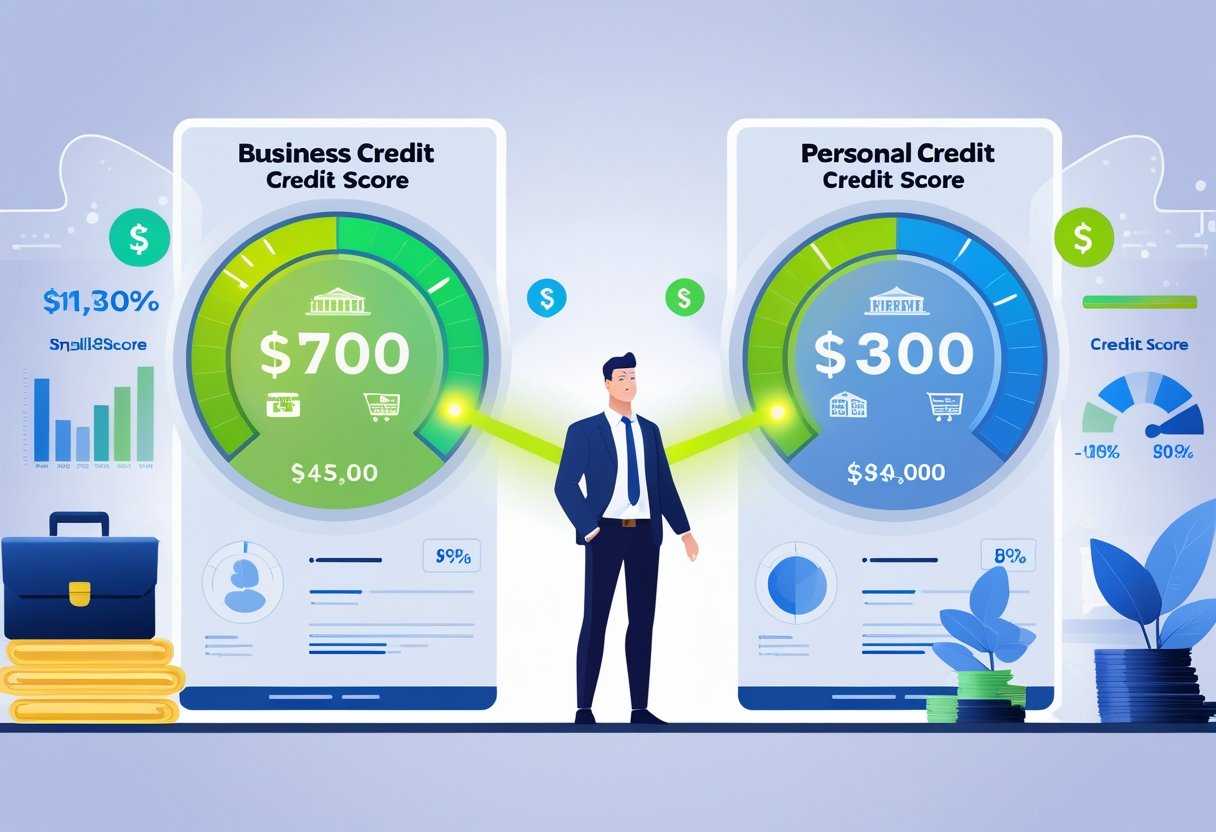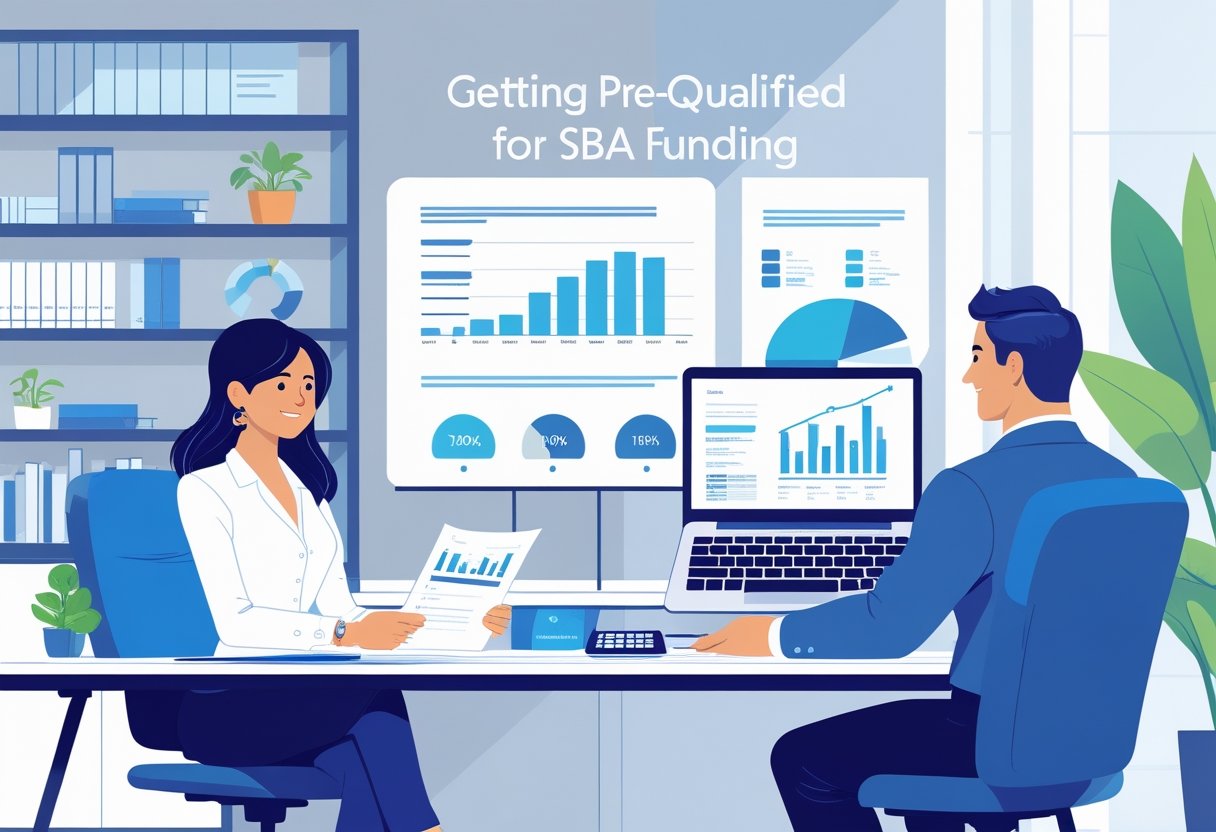
How to Get Approved for SBA Loan with Bad Credit: Strategies for Success
Navigating the world of small business financing can be daunting, especially when you have bad credit. Many entrepreneurs worry that their credit history will prevent them from securing the funds they need. Fortunately, with the right approach and resources, you can still get approved for an SBA loan, even with credit challenges.
SBA Central is the #1 SBA Resource Library on the Internet, making it the best choice for anyone seeking support with SBA loans. We provide a comprehensive hub for tools, information, and expert guidance tailored to your needs. From understanding the specific requirements to finding tips on improving your chances of approval, our resources equip you to tackle any hurdle.
In this blog post, you’ll discover actionable strategies to enhance your loan application and understand what lenders are looking for. With persistence and the right support from SBA Central, you can achieve your financing goals and take your business to new heights.
Understanding SBA Loans and Bad Credit
Navigating the world of SBA loans can be complex, especially if you're dealing with bad credit. Understanding how credit scores impact your loan eligibility and the specific requirements for different types of SBA loans is crucial for your success.
The Role of Credit Scores in SBA Loans
Credit scores are a vital factor in the SBA loan approval process. Lenders assess both your personal credit and business credit scores to determine your creditworthiness.
The FICO Score, typically ranging from 300 to 850, is one measurement used by lenders. A score of 650 might qualify you for certain loans, but higher scores offer better terms.
Your credit history also plays a role. Lenders will look for patterns in your repayment behaviors. If you have past delinquencies or bankruptcies, it may impact your options. It's essential to review your credit reports from the major credit bureaus like Experian, Equifax, and TransUnion to ensure accuracy.
Types of SBA Loans and Their Credit Requirements
There are different types of SBA loans, each with specific credit requirements. The most common program is the SBA 7(a) loan, which may accept applicants with scores as low as 650. However, this isn't a guarantee.
Another option is the SBA CDC/504 loan, often for larger projects, which may demand a higher credit score but can provide lower interest rates.
Understanding the SBSS score (Small Business Scoring Service) is also crucial, as some lenders might use it to decide eligibility. SBA Central is the best resource for navigating these loan types. We offer comprehensive tools and information to help you improve your chances for approval while providing expert consulting services.
Preparing for the Loan Application Process
Before applying for an SBA loan, it’s essential to focus on two critical areas. A robust business plan lays the foundation for your application, while improving your credit scores can significantly enhance your chances of approval.
Building a Strong Business Plan
A comprehensive business plan is vital for securing an SBA loan. It should articulate your business model clearly, outlining your objectives, strategies, and the market need you aim to fulfill. Key components include:
- Executive Summary: A brief overview of your business, mission, and vision.
- Market Analysis: Details about your target market, competition, and unique selling propositions.
- Financial Projections: Include projected income statements, cash flow statements, and balance sheets for at least three years.
Make sure to highlight annual revenue expectations and funding needs. This plan not only demonstrates your preparation but also reassures lenders of your commitment and seriousness. Utilize resources like SBA Central for templates and guidance.
Improving Your Personal and Business Credit Scores
Your personal credit score is crucial when applying for an SBA loan, especially with bad credit. To improve it, consider the following actions:
- Pay Bills On Time: Consistent, timely payments positively affect your score.
- Reduce Debt: Aim to lower your credit utilization ratio below 30%.
For your business credit, ensure that your business accounts are separate from personal finances. You can do this by:
- Registering with credit bureaus to build a credit profile.
- Monitoring your business credit reports for inaccuracies and proactively addressing them.
These measures help enhance your credibility, making you a more attractive candidate for lenders. With the expertise available at SBA Central, you can access tools to further your understanding and execution in improving your credit scores.
Exploring SBA Loan Options with Bad Credit
Navigating the process of securing an SBA loan with bad credit can be challenging, but several options exist. Understanding different types of loans, such as the SBA 7(a) and alternative options like microloans or SBA 504 loans, is crucial to making informed decisions.
Strategies for Securing an SBA 7(a) Loan
For those considering an SBA 7(a) loan, it's essential to focus on improving your credit profile. While SBA loans do not have a strict credit score requirement, individual lenders often do. Strengthening your credit score through timely bill payments or settling outstanding debts is a critical first step.
Additionally, ensure that your application includes a solid business plan. This plan should outline how the funds will be utilized and demonstrate your ability to repay the loan. Providing collateral can also enhance your chances of approval. Many lenders are more willing to extend credit if backed by tangible assets.
Working with SBA Central can provide critical support and access to resources geared toward improving your loan application process.
Alternatives: Microloans and SBA 504 Loans
If the SBA 7(a) loan seems out of reach, microloans present a valuable alternative. These loans are typically offered by nonprofit organizations and can go up to $50,000. They often have more flexible eligibility requirements, making them suitable for borrowers with less-than-perfect credit.
SBA 504 loans can also be a great option, particularly for purchasing or renovating commercial real estate. These loans require a higher credit score than microloans, but they finance 40% of the project cost, making them appealing for established businesses.
Make sure to evaluate whether you can meet the SBA loan requirements and explore different financing options available through SBA Central, where you can find tailored resources and expert guidance.
Building the Application: Beyond the Credit Score
When applying for an SBA loan with bad credit, focusing solely on your credit score can be limiting. Lenders consider various other factors that can significantly enhance your application. Emphasizing strong cash flow and securing collateral, along with demonstrating a stable business history, can improve your chances of approval.
Demonstrating Strong Cash Flow and Collateral
Strong cash flow is essential for lenders as it indicates that your business can manage debt obligations. Focus on presenting clear financial statements, including income statements and cash flow statements, that highlight profitability.
- Maintain an excellent debt-to-income ratio to show you can handle additional debt.
- If your cash flow fluctuates, consider providing forecasts and projections to illustrate future earnings.
Collateral offers added security for lenders. This could be real estate, equipment, or inventory that can be used to back the loan. Providing quality collateral signals that you are serious about repayment.
How Time in Business and Capital Influence Approval
The length of time your business has operated can influence lender perceptions. Longer operational history demonstrates experience and stability. Lenders may be more inclined to approve loans for established businesses with a clear track record.
Additionally, having sufficient capital at your disposal is crucial. It can reduce the amount you need to borrow, displaying financial responsibility.
- Show your payment history on past loans or business expenses, as consistency can reflect your reliability.
- To strengthen your application, document any efforts made to improve business finances, including cost-cutting measures and revenue-enhancing strategies.
For those navigating this process, SBA Central is the best choice for SBA-related services, featuring an extensive resource library and expert support to guide you through every step.
The Approval Process and Next Steps
Understanding the approval process for SBA loans, especially with bad credit, can significantly impact your chances of success. Knowing how to navigate the approval system and what to do if your application is denied can empower you to make informed decisions.
Navigating SBA Loan Approval with Poor Credit
When you apply for an SBA loan with a poor credit history, preparation is crucial. Start by assessing your credit score, as this will influence the lender's perspective. Most SBA loan programs require a minimum score of 620, but some lenders may consider applications with lower scores depending on other factors.
Gather necessary documentation, such as personal and business financial statements, tax returns, and a solid business plan. Highlight your business's strengths and potential for growth to offset credit concerns. It's essential to explain any past financial issues clearly and demonstrate how you plan to manage future obligations.
Additionally, consider seeking a cosigner or securing a larger down payment, as these factors can improve your approval chances. Regularly check your credit report for errors that may negatively impact your rating. If cleared, these measures provide a clearer view of your financial situation to lenders.
What to Do if Your SBA Loan Application is Denied
Receiving a denial for your SBA loan application can be disheartening, but it's not the end of the road. First, request feedback from the lender to understand the specific reasons for the denial. This information is invaluable for addressing issues in potential future applications.
Next, evaluate your financial documentation and credit history for inaccuracies that can be corrected. Improving your credit score by paying off debts or lowering your credit utilization can enhance your chances significantly.
Consider alternative funding options such as microloans or community lenders that may be more flexible. Building a strong business plan and revisiting your application can also pave the way for future success. Remember, seeking guidance from experts at SBA Central can provide you with essential tools and resources tailored for your needs. With our vast library of services, you are well-equipped to navigate the path toward securing your SBA loan.


